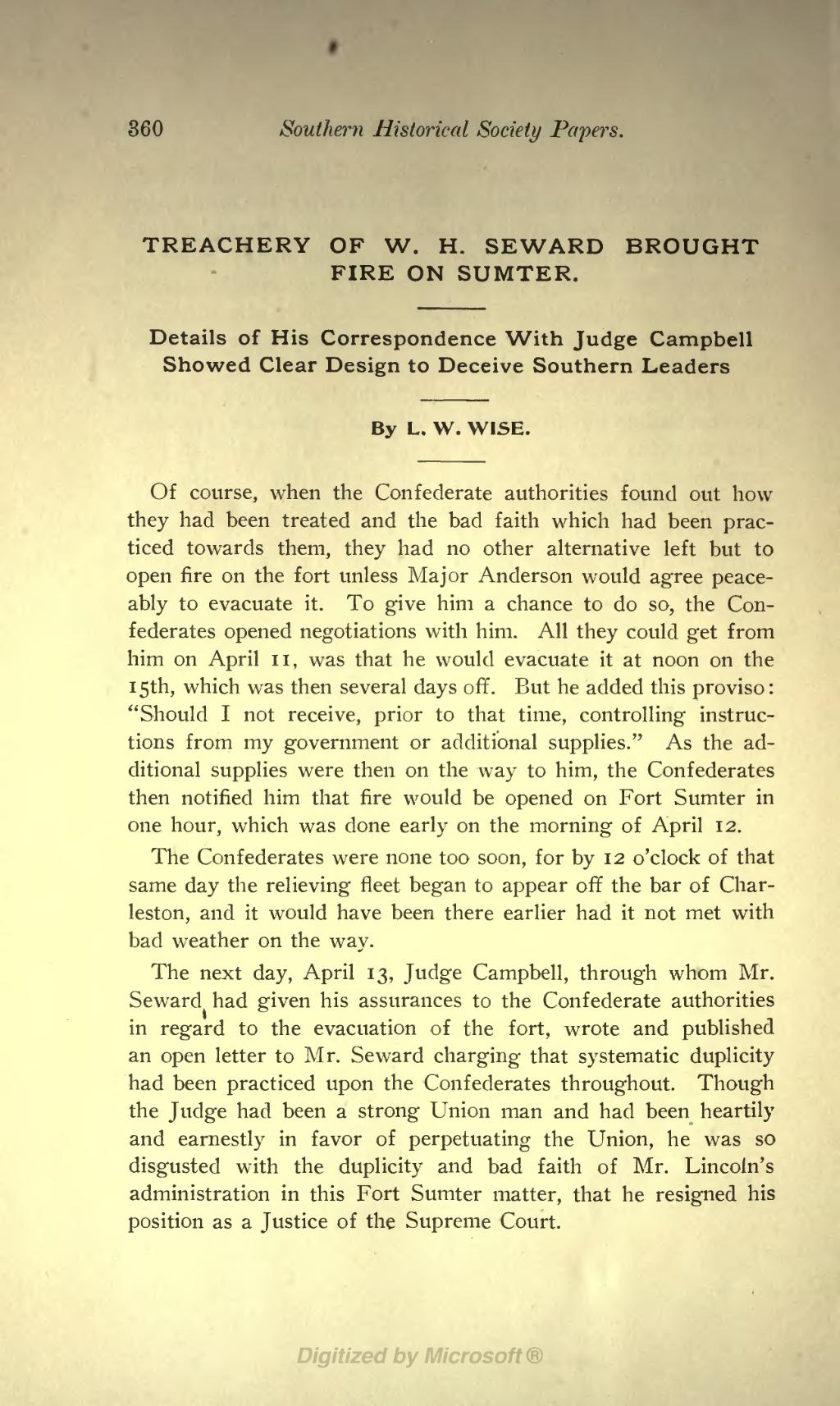TREACHERY OF W. H. SEWARD BROUGHT
FIRE ON SUMTER.
Details of His Correspondence With Judge Campbell
Showed Clear Design to Deceive Southern Leaders
By L. W. WISE.
Of course, when the Confederate authorities found out how they had been treated and the bad faith which had been practiced towards them, they had no other alternative left but to open fire on the fort unless Major Anderson would agree peaceably to evacuate it. To give him a chance to do so, the Confederates opened negotiations with him. All they could get from him on April 11, was that he would evacuate it at noon on the 15th, which was then several days off. But he added this proviso: "Should I not receive, prior to that time, controlling instructions from my government or additional supplies." As the additional supplies were then on the way to him, the Confederates then notified him that fire would be opened on Fort Sumter in one hour, which was done early on the morning of April 12.
The Confederates were none too soon, for by 12 o'clock of that same day the relieving fleet began to appear off the bar of Charleston, and it would have been there earlier had it not met with bad weather on the way.
The next day, April 13, Judge Campbell, through whom Mr. Seward had given his assurances to the Confederate authorities in regard to the evacuation of the fort, wrote and published an open letter to Mr. Seward charging that systematic duplicity had been practiced upon the Confederates throughout. Though the Judge had been a strong Union man and had been heartily and earnestly in favor of perpetuating the Union, he was so disgusted with the duplicity and bad faith of Mr. Lincoln's administration in this Fort Sumter matter, that he resigned his position as a Justice of the Supreme Court.
